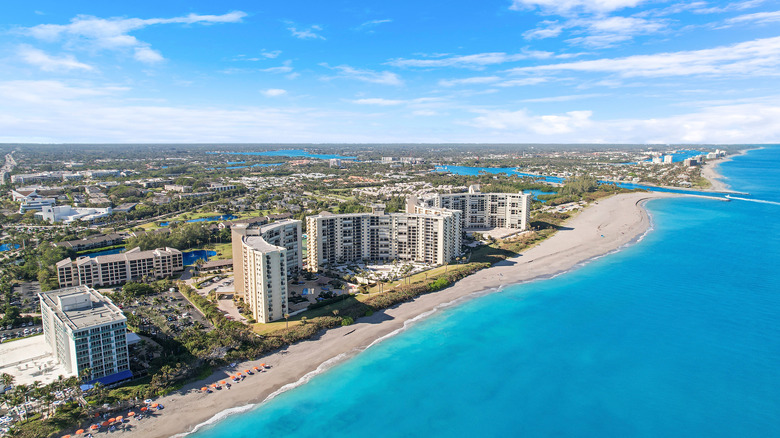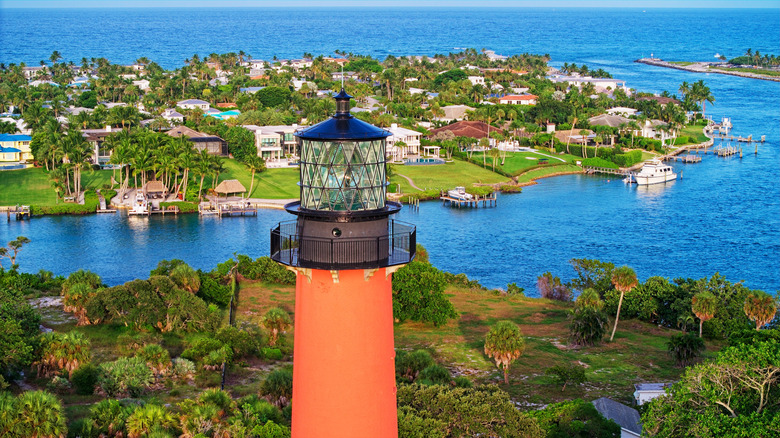One Of America's Most Dangerous Beaches Of 2025 Is On Florida's Wildly Popular Atlantic Coast
Florida is undoubtedly a beachgoer's destination, with more than 8,000 miles of coastline and areas like Palm Beach and Daytona Beach known well beyond the Sunshine State. Many of its top vacation spots are scattered along the glittering Atlantic coast, whether you're basking in Art Deco haven in Miami's trendy South Beach neighborhood or visiting a cute, seaside escape like Sebastian, with its tasty food and uncrowded beaches. But some of these beaches, as pretty as they are, are to be approached with caution.
Based on data from Tideschart, a marine forecasting company, America's top 10 most dangerous beaches in 2025 are all in Florida — and eight of them are on the Atlantic Coast. New Smyrna Beach, notorious for shark attacks, topped the list, while Laguna and Daytona beaches, where multiple surf zone fatalities and shark attacks have been recorded, came in second and third place, respectively. A surprise addition to the list, sneaking in at number 10, was Jupiter Beach, nestled between Miami and Orlando.
The small city of Jupiter is known for having some of Florida's best beaches, lovely waterside restaurants, and excellent golf courses (not to mention golf-friendly conditions) that have encouraged many PGA Tour pros to make their permanent residence here. But while it may appear to the untrained eye as a sun-kissed paradise, beach-bound vacationers should be aware that the threat of hurricanes, the presence of challenging surf spots, and the risk of shark attacks all come as part of the deal here.
Why is Jupiter Beach dangerous?
Tideschart's data revealed that Jupiter Beach had reported five surf zone fatalities and 23 shark attacks in its history. In April 2025, the Florida Department of Health also released a water quality advisory, stating that high levels of the Enterococcus bacteria were detected in Jupiter's waters, thereby posing a risk to swimmers. Other risks include more standard considerations, like dehydration during Florida's hot season. A higher-than-normal presence of water toxins, known as "red tides," can cause skin and respiratory irritation, while stings from other wildlife like jellyfish and stingrays or meteorological phenomena like lightning strikes and hurricanes are all hazards to consider.
There are nearly one billion annual beach visits in Florida, which puts fatality statistics into perspective. Nevertheless, many of the accidents that do happen are considered preventable. So, before bounding straight into the Atlantic surf, it's a good idea to consult weather and surf-condition apps and check for any news bulletins on the Town of Jupiter website to ensure a happy and safe holiday time.

